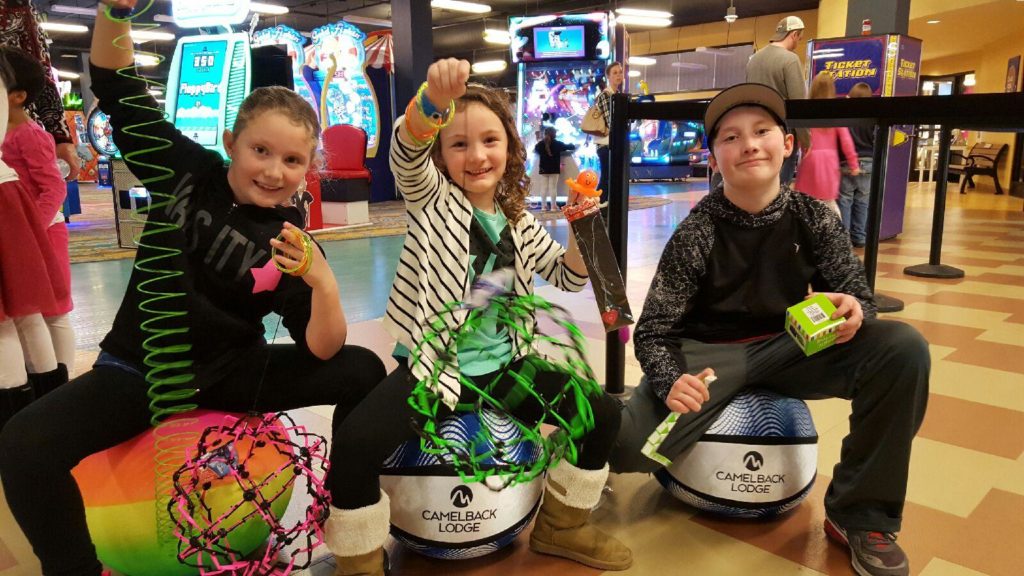Transactional vs. Relational
By George McAuliffe, President, Pinnacle Entertainment Group

George McAuliffe
In the spirit of using the COVID crisis to improve our businesses, here are some thoughts on two fundamental business philosophies: transactional vs. relational. Transactional interaction tends to be short term, relational long term. A transactional interaction means: “You give me this, I give you that.” Relational business exchanges can still be at the exchange level but are more like: “We really appreciate having you as a guest, it’s really important to us that we keep you.”
Characteristics of the relational approach include:
• A desire to cultivate the relationship over time
• A desire to exceed guest expectations, to surprise them with the quality of experience
• To understand and connect with the guest (have them connect with staff/ownership)
Characteristics of the transactional approach include:
• Value the transaction over the relationship
• Meet minimum expectations
• Deliver only what the customer will let you get away with
• Advertise and market constantly
Implications for FECs
The main reason we are in business is to deliver a guest experience which lends itself to the relational approach. Most FECs are community-based. Their audience is within a 15- to 20-minute drive away. Given the economics of the FEC, this means we have to attract multiple visits from that audience.
The customer’s feelings on the ride home after they leave us are key. Did they have fun? Was it affordable? Did they create memories? Was the return in redemption prizes for money spent fair? Time for money? The answers to those questions determine whether and when they will return, as well as what they’ll tell their friends.
In FECs, once we have the customer in the door, our biggest lever on profitability is getting that customer to return. Each time they do, the original cost of acquiring that customer drops and profitability per visit rises. If they tell their friends how great their experience was, it drops further.
Other Levers
FECs tend to be both multi-attraction and multi-function. Multi-attraction means that FEC activities may be paired with others like bowling, cinema, restaurants, casinos or hotel resorts. Understanding the guest and exceeding expectations in the arcade or other FEC attractions supports the greater business.
FECs are also multi-functional. A mom who visits with her family on weekends may be a corporate executive with a team-building budget. Everybody who comes in the door for a regular visit has a birthday. Kids are members of church and scout groups. You get the idea: Understanding the guest and delivering a great experience on Saturday afternoon crosses over into support for other profit centers.

Case Study
Regular readers with long memories may remember this, but it’s still the best illustration of how a narrow, transactional focus doesn’t work in our business.
My niece and her family took their winter break at a resort in the Pocono mountains. While the main activity at this resort in January is skiing, the property also offers a waterpark, large arcade, ropes course, climbing wall and other attractions. Over three days, the family spent about $2,000 at the resort, including meals, room charges, ski passes and entertainment.
They were especially happy with the arcade. Mom liked the assortment of fun games and the toys the kids won for redeeming their tickets. She felt like they had gotten their money’s worth and was happy to see her kids smiling. The kids all felt they had accomplished something by winning multiple “great prizes!”
A week later, my phone rang with another report. My niece had been at a school event talking to another mom when the conversation turned to winter break. She had raved about her “Resort A” experience. The friend, who had stayed at “Resort B,” a few miles away, asked for details. My niece talked about how great the arcade experience was. To which her friend said, “No way! That was what killed the vacation for us at Resort B!”
She described a grim redemption experience. After spending about the same $125 over three days at the arcade, the friend and her kids went to cash in their tickets. Two of the kids had enough tickets for “a few Tootsie Rolls.” The youngest daughter, who was five, had spent most of her credits trying (fruitlessly) to win a plush animal in a crane. She did not have enough tickets for anything. When her mom asked the attendant, with the 5-year old in tow, if she could just give her a Tootsie Roll or two, the attendant refused blaming “company policy.” The child then burst into tears!
How different could two experiences be? You can imagine the end of the story. My niece’s friend was going to “Resort A” next year. Both moms will continue to share their respective experiences with friends. About $25 saved in redemption cost will cost “Resort B” at least $2,000 in sales next year, and probably more.
You might want to budget some time to audit your guest experience, internal culture and training programs to ensure that your business is truly relational –– in it for the long term.
George McAuliffe has helped hundreds of businesses large and small develop and execute arcades and FECs. He has personally operated family entertainment centers from 2,000 to 150,000 square feet as a corporate executive, entrepreneur and consultant. He is the owner, with his partner and son Howard, of Pinnacle Entertainment Group.
George lives on the Jersey Shore with his wife, Julie. They have three sons, two daughters-in-law and a grandson.
Readers can learn more about Pinnacle at grouppinnacle.com or contact George at georgemc@ grouppinnacle.com; phone: 314-422-7197.





